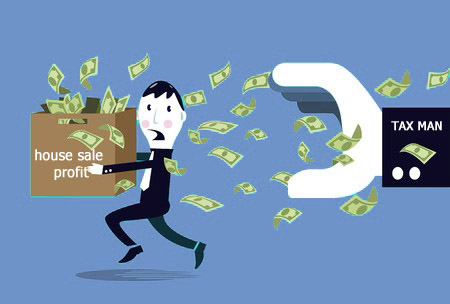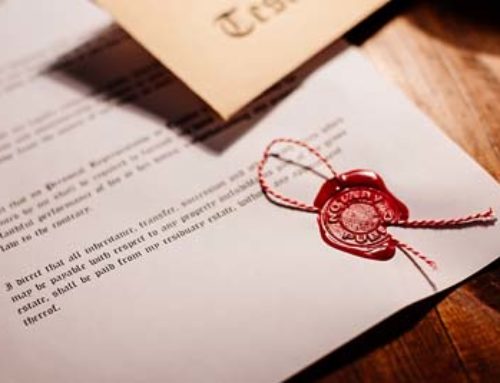 Spanish Government has already submitted to the Parliament and Senate the draft of the 2015 State Budget Law for discussion and further approval. Among the tax novelties contained in this proposal, there is one that in the event that it is finally approved without changes could seriously increase the tax bill for owners selling their properties, especially if they were acquired before 1994. We refer to the elimination of the indexation (coeficiente de actualización in its Spanish name) and the abatement coefficient (coeficiente de abatimiento) used for the calculation of Capital Gain Tax.
Spanish Government has already submitted to the Parliament and Senate the draft of the 2015 State Budget Law for discussion and further approval. Among the tax novelties contained in this proposal, there is one that in the event that it is finally approved without changes could seriously increase the tax bill for owners selling their properties, especially if they were acquired before 1994. We refer to the elimination of the indexation (coeficiente de actualización in its Spanish name) and the abatement coefficient (coeficiente de abatimiento) used for the calculation of Capital Gain Tax.
What are these weightings and how do they act in the calculation of the capital gain tax of non-resident vendors?
* The indexation is a weighting that is applied to the cost of acquisition of the property (price plus direct expenses such as taxes or fees) to the effect of adapting that value to the current moment in which the sale is made. Thus, the effect of inflation in the years passed from acquisition is subtracted to the gain. It is understandable that 50,000 € from 1986 would not have the same value in 2014. They apply only to purchases done at least one year prior to the sale, as sales done in the same year of acquisition require no correction. These coefficients vary annually and are published by the Government in the Law accompanying the State Budget. The indexation for sales carried out in 2014 is:
|
Acquisition |
Indexation |
|
94 & previous 1995 1996 1997 1998 1999 2000 2001 2002 2003 2004 2005 2006 2007 2008 2009 2010 2011 2012 2013 |
1,3299 1,4050 1,3569 1,3299 1,3041 1,2807 1,2560 1,2314 1,2072 1,1836 1,1604 1,1376 1,1152 1,0934 1,0720 1,0510 1,0406 1,0303 1,0201 1,0100 |
* The coefficient of abatement, applies (on top of the indexation) to the sales of properties acquired before 31st December 1994 to the effect of further reducing the taxable capital gain.
The Income Tax Law of 1991 established abatement coefficients that reduced the capital gains based on the years that the goods were in our name. The more years, the less taxable capital gain.
In 1996 those coefficients were suppressed for acquisitions done after 1994 but the coefficients were respected for taxpayers who acquired before 31st December 1994 so that their capital gain could be reduced by 11.11% per year computable (exceeding from the first two) from acquisition date to 31st December 1994.
In 2006 the new Income Tax Law reduced the effect of abatement coefficients to limit the gain just until 20th January 2006, so it was necessary to differentiate the gain accrued since acquisition to such date from the gain generated as of that date to the sale.
For example:
We sell a property on 1st November 2014 for € 300,000, that was acquired on 1st January 1989 for a price of € 60,000.00 and with some deductible acquisition costs of 4,000.00 €.
Deductible expenses associated with the sale (Plusvalía tax, real estate agent’s fees and lawyers fees) amount to € 24,000.
1. Calculation of the share of Capital Gains generated before 20/01/2006
Transmission Value = Selling Price – Deductible costs = € 276,000
Acquisition Value = (Purchase Price + Expenses) x Indexation = (€ 60,000 + € 4,000) x 1.3299 = € 85,113.60
Capital Gain = € 190,886.40
Number of days between dates of purchase and sale: 9,435 days
Number of days between the date of purchase and 19/01/2006: 6,228 days
Part of the gain susceptible of reduction: € 190,886.40 x (6,228 / 9,435) = € 125,985.02
2. Calculation of the reduction using the abatement coefficients
Years of ownership in excess of the first two up to 31/12/1996: 6 years
Reducing Percentage: 66.66%
Reduction: € 125,985.02 x 66.66% = € 83,981.61
3. Calculation of the gain
Reduced Capital Gain = € 190,886.40 – € 83,981.61 = € 106,904.79
4. Calculation of the tax
€ 106,904.79 x 21% = € 22,450.00
What would it happen, in this same example, if we do not apply the indexation and abatement coefficient? In that situation the taxable amount would rise from € 106,892.19 to € 212,000 and the tax bill would rise from € 22,450.00 to € 44,520.00, that is almost double.
But the initially proposed amendment, if approved without modification, would seriously affect also the sales of homes purchased after 1994, in which currently we cannot use the abatement coefficient but only the indexation.
Here is an example:
We sell a property on 1st November 2014 for € 300,000, acquired in 2001 for a price of € 175,000.00 and with a deductible acquisition cost of € 16,500.00.
Deductible expenses associated with the sale (Plusvalía, real estate agents fees and lawyers fees) amount to € 24,000.
1. Calculation of the capital gain
Transmission Value = Selling Price – Deductible Cost = € 276,000
Acquisition Value = (Purchase Price + Expenses) x Indexation = (€ 175,000.00 + € 16,500.00) x 1.2314 = € 235,813.10
Capital Gain = € 40,186.90
2. Calculation of the tax
€ 40,186.90 x 21% = € 8,439.25
What would it happen from 1st January 2015? Not being able to update with the indexation the acquisition cost, the capital gain would rise to 84,500 € and therefore the final tax bill would go up from the current 8,439.25 € to 17,745 €, which is more than double.
The government tried to justify the removal of abatement coefficients saying that with the years passed it had a very limited application, especially considering that these changes do not affect the sale of the main residence when that income is used to purchase another main residence or where the capital gain is derived from the sale of the main residence of a person over 65 years old or a disabled person, because in these cases gain is always exempt from taxation.
All this matter has created discomfort among real estate professionals and serious concern for those long-term owners of properties who were thinking of selling them in the near future. Even some government party members have raised their voices against the measure as they believe it could generate an electoral punishment by their own voters. Even the country Ombudsman has expressed concern and has requested information from the Ministry of Finance regarding these proposed amendments.
However, now it seems clear that the Government has reconsidered this issue and has backtracked on its initial claims softening significantly the planned reform. Thus, among the proposed amendments presented in the Senate by its group there is one to maintain the abatement coefficients but limiting them to transfers where the price does not exceed € 400,000. The amendment also states that the limit of € 400,000 for the use of abatement coefficients does not apply to each transaction but to every owner. The amount of capital gains achieved from 2015 is considered as a whole and as a result a taxpayer will be able to apply the abatement coefficients until the addition of all the sale prices comes to € 400,000, regardless of how many properties acquired prior to 1994 are sold.
On the other hand, the government party has not submitted any amendment proposal to the elimination of the indexation, but they might be also considering here to limit the scope of the reform. The CIU group (right wind party from Catalonia) has filed an amendment proposal calling for the maintenance of the indexation coefficient.
We need to wait and see what is finally approved and in principle we would recommend to clients who may already be selling their homes to make an effort to close the deal before the end of the year, especially if they acquired their properties many years ago and/or are selling for more than 400,000 €.
Luis M. Vicente Burgos
VICENTE & OTAOLAURRUCHI ABOGADOS






